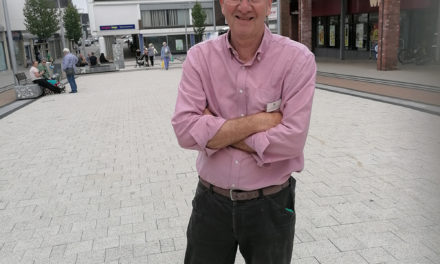Police and Crime Commissioner Joy Allen is celebrating the successes of her first two years in office which have brought steep reductions in neighbourhood crime and anti-social behaviour and more officers on the streets.
Since her election in 2021, the PCC has overseen the largest intake of new police officers in a decade to deliver the strong local policing the public expect.
She has also secured millions of pounds of extra funding for the county for the purposes of crime prevention and supporting victims and fought for a fairer funding system to ensure areas of higher deprivation like Durham receive the support they need.
During her term, Durham Constabulary has been consistently rated alongside the best forces in the country for performance, receiving high praise from Her Majesty’s Inspectorate of Constabulary and Fire & Rescue Services (HMICFRS) in areas such as serious organised crime and acquisitive crime (shoplifting, burglary, theft and robbery).
The PCC has also delivered on her promise to get tough on the issues that cause the public misery, investing in technology and resources to fight nuisance problems such as fly-tipping as part of her three-year Police and Crime Plan.
This week, the Commissioner will present her latest performance report to the Police and Crime Panel covering the period January to March 2023.
It provides further evidence of her achievements with Neighbourhood Crime (robbery, residential burglary. Theft from the person, vehicle crime) – a key priority for the public – falling -32.7 per cent (2,373 offences) in the 12 months to March 2023 compared to the period prior to the Commissioner’s election in 2019-20 (pre-Covid).
The success is replicated in ASB which fell by -26.6 per cent in the 12 months to March 2023 (4,886 fewer offences) compared to pre-Covid levels.
Shortly after her first year, the Commissioner became the first PCC in the country to appoint a dedicated ASB Champion to give victims a bigger voice in the way issues are solved and offenders punished. She has also improved co-operation and co-ordination between partners to treat the problem more effectively and made it easier for victims to seek redress for persistent ASB.
Other key achievements include successfully lobbying for a ban on nitrous oxide – seen by many as a gateway to harder drugs – and tighter controls of the betting industry to protect problem gamblers, increase treatment facilities and prevent children from being drawn into gambling addiction. As part of this work, Durham Constabulary recently became the first force in the country to sign up to the Gambling Charter, making public its commitment to supporting employees who are at risk of becoming problem gamblers.
Commissioner Allen said: “I’m really proud of our achievements over the last two years which are making County Durham and Darlington even safer.
“Durham Constabulary is now 226 officers better off than it was in 2019 and although I’ve been very vocal about the need for even more to take us back to 2010 levels, I’m well-aware of the difference they are already making in our communities by providing the visible and proactive policing everyone wants to see.
“Neighbourhood policing should be at the bedrock of all policing. This is why I’ve continued to build the resilience of our local teams at a time when others have scaled back with 146 Police Community Support Officers (PCSOs) now in post across the force – 55 higher than the national average.
“This work has been boosted by the £1.5m of extra funding I’ve been able to secure from the Safer Streets Fund which has been invested in free security upgrades in Peterlee and Ferryhill and the roll out of preventative programmes with young people to tackle the root causes of ASB.
“A mark of our success has been the recent inclusion of the Durham force area in the Government’s new national pilot to crackdown on ASB. This trailblazing scheme is likely to bring a further £4m into the county to fund a faster punishment system and help young lives get back on track.
“I know there are many challenges to overcome to tackle the inequalities that act as a barrier to success for many people. I’m not afraid of responsibilities of this role and will work harder than ever to make a difference over the remaining 12 months of my term.”











